Key takeaways
- Corporate incubators drive innovation by leveraging internal resources and external partnerships.
- A structured incubator creates a pipeline of ventures, expanding market reach and revenue.
- Strategic alignment ensures executive buy-in, clear governance, and measurable impact.
- The right incubation model (internal, external, hybrid) shapes funding and scaling strategies.
- Top companies like AB InBev, P&G, and Barclays use incubators to maintain market leadership.
Corporate incubation is a proven strategy to fuel innovation, expand beyond your core business and encourage an entrepreneurial mindset – all while leveraging existing corporate assets.
Leading corporations across different industries have successfully used this approach to future-proof their business, find disruptive solutions to traditional problems, and gain a competitive edge. In essence, incubators enable companies to accelerate growth by creating a pipeline of corporate ventures to:
- Experiment with new business models
- Try out new technologies
- Develop new and improved offerings
- Create new revenue streams
To give you a better idea of how they work in the real world, we’ve created a list of 10 inspiring Corporate Incubators from around the world. Each example tackles innovation in a new and creative way, providing valuable insights you can use to design your own tailored incubation strategy.
But first, let's kick things off with a bit of context.
What is a corporate incubator and, Why do companies use them?
A corporate incubator is an internal program that helps companies develop, test, and scale new ventures by leveraging corporate assets. It enables businesses to:
- Experiment with new business models while minimising risk.
- Develop & validate emerging technologies before full-scale investment.
- Create new revenue streams beyond the core business.
- Enhance internal innovation culture and attract entrepreneurial talent.
Unlike independent business incubators, corporate incubators are specifically created and funded by existing companies to foster innovation that aligns with their strategic interests.
Now that you have some context, let's look at some real world corporate incubator examples.
10 real-world corporate incubator examples in various industries
1. hub:raum
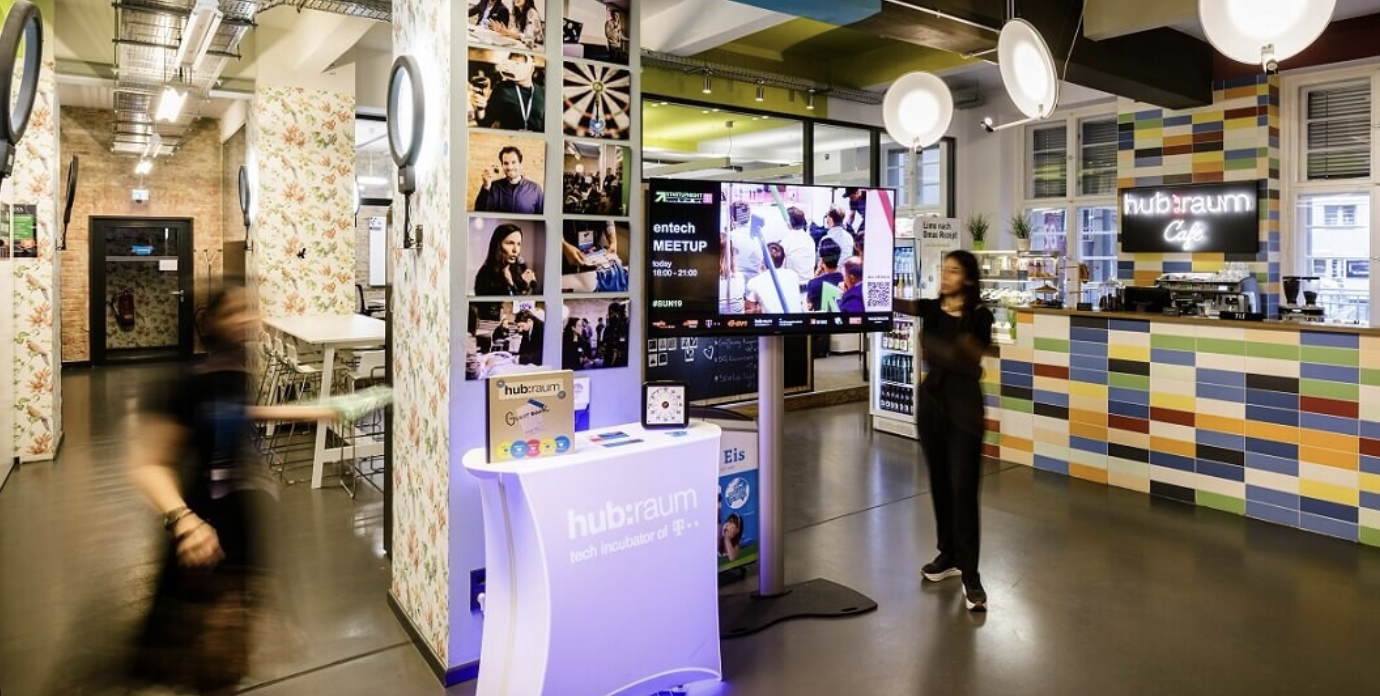
Headquarters: Germany
Active in: Telecom
Launched: 2012
Activities: Incubation, acceleration, investments, M&A
Managing Director: Axel Menneking
Hub:raum helps Deutsche Telekom fuel innovation through InsurTech, HealthTech and Mobility ventures. It works with early-stage startups through co-innovation programs, seed investments, and by giving them access to corporate assets and expertise. Since its start in 2012, hub:raum has grown into a vast ecosystem with locations in Berlin, Krakow and Tel Aviv.
Why It Works:
- Acts as Deutsche Telekom’s venture builder and accelerator, supporting emerging tech startups and tapping into their innovations.
- Provides startups with funding, infrastructure (5G test labs), mentorship, and corporate partnerships to nurture their growth and success.
- Fosters internal innovation by integrating startup solutions into Deutsche Telekom’s ecosystem.
2. P&G Ventures by P&G
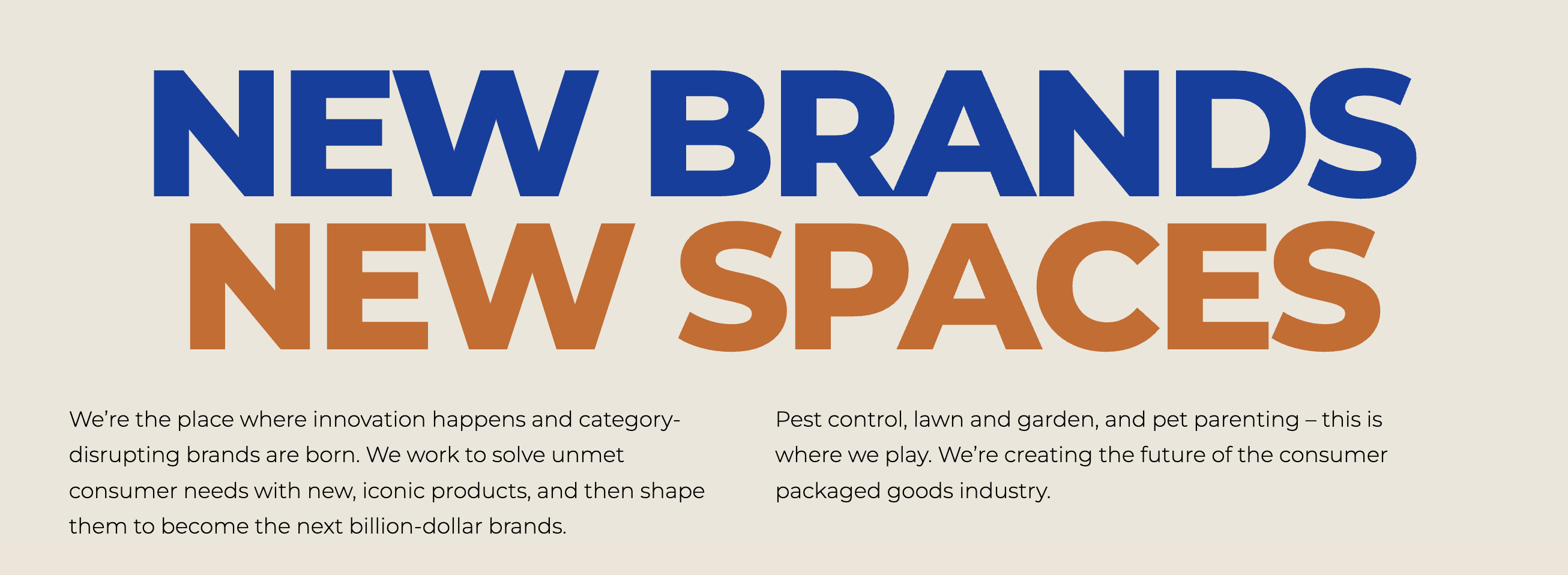
Headquarters: USA
Active in: Retail
Launched: 2015
Activities: Incubation, acceleration
Director at P&G Ventures: Penytina Dimitropoulou
P&G Ventures is an in-house incubator that partners with startups, entrepreneurs, and inventors to build brands and businesses in the consumer packaged goods space. Although their ventures come in all shapes and sizes, they all follow a simple three-step development process:
- Discover
- Create
- Build
They operate by providing their startups with guidance in different areas, including branding, manufacturing, sales, legal and distribution.
Why It Works:
- Partners with startups & inventors to develop innovative CPG products.
- Provides expert support in branding, manufacturing, and distribution.
3. Chemovator by BASF

Headquarters: USA
Active in: Retail
Launched: 2015
Activities: Incubation, acceleration
Managing Director: Markus Bold
Chemovator provides a protected space for entrepreneurs within BASF to turn “bold ideas into thriving businesses”. Focused on exploring unconventional growth opportunities in areas like sustainability, next generation materials, chemistry, and more, Chemovator enables teams to test early-stage concepts by providing comprehensive coaching, mentoring, and resources to develop these ideas into market-ready solutions.
The result? Low-risk, investable ventures for BASF to internalise or turn into spin-off companies.
Why It Works:
- Provides a protected space for BASF to launch high-risk, high-reward projects.
- Supports intrapreneurs with mentorship, R&D access, and corporate backing.
4. Rise created by Barclays
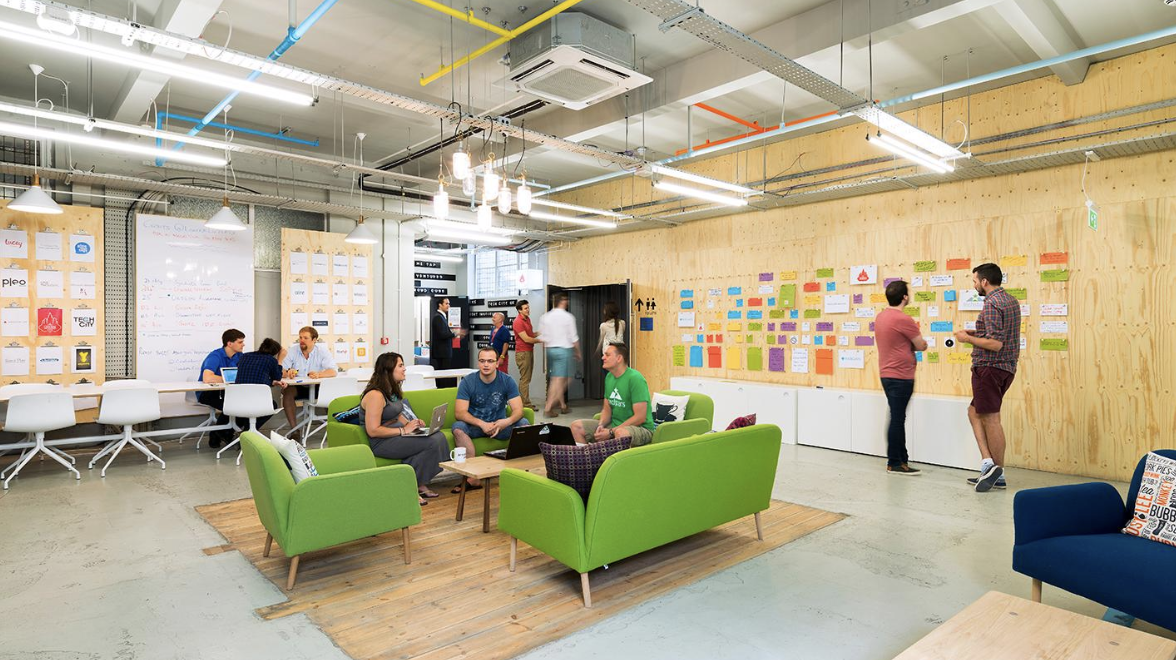
Headquarters: UK
Active in: Financial Services
Launched: 2015
Activities: Incubation, acceleration, investments
Head of Innovation: Andrew Elphick
Rise brings together a global community of innovators to shape the future of finance. With offices in London, Mumbai and New York, Rise provides a space for innovative startups and scale-ups to connect and build cutting-edge FinTech solutions. Each venture is backed by Barclays' global network of experts, mentors, investors and partners.
Why It Works:
- Multiple global hubs, attracting top-tier startups in AI, blockchain, and digital banking.
- Connects startups with access to funding, industry experts, and regulatory guidance.
- Fosters partnerships between startups, Barclays and other major financial institutions.
5. Wayra by Telefonica

Headquarters: Spain
Active in: Telecom
Launched: 2011
Activities: Incubation, acceleration, investments
CEO: Irene Gomez
Wayra helps Telefónica connect with disruptive tech startups on a global scale. They work with startups at every phase in their development, focusing on entertainment, AI, IoT, eHealth, data and FinTech. All in-house innovation projects are supported by Telefónica Venture Builder (formerly Wayra Builder), enabling them to find the right market fit and become independent spin-offs or spin-ins.
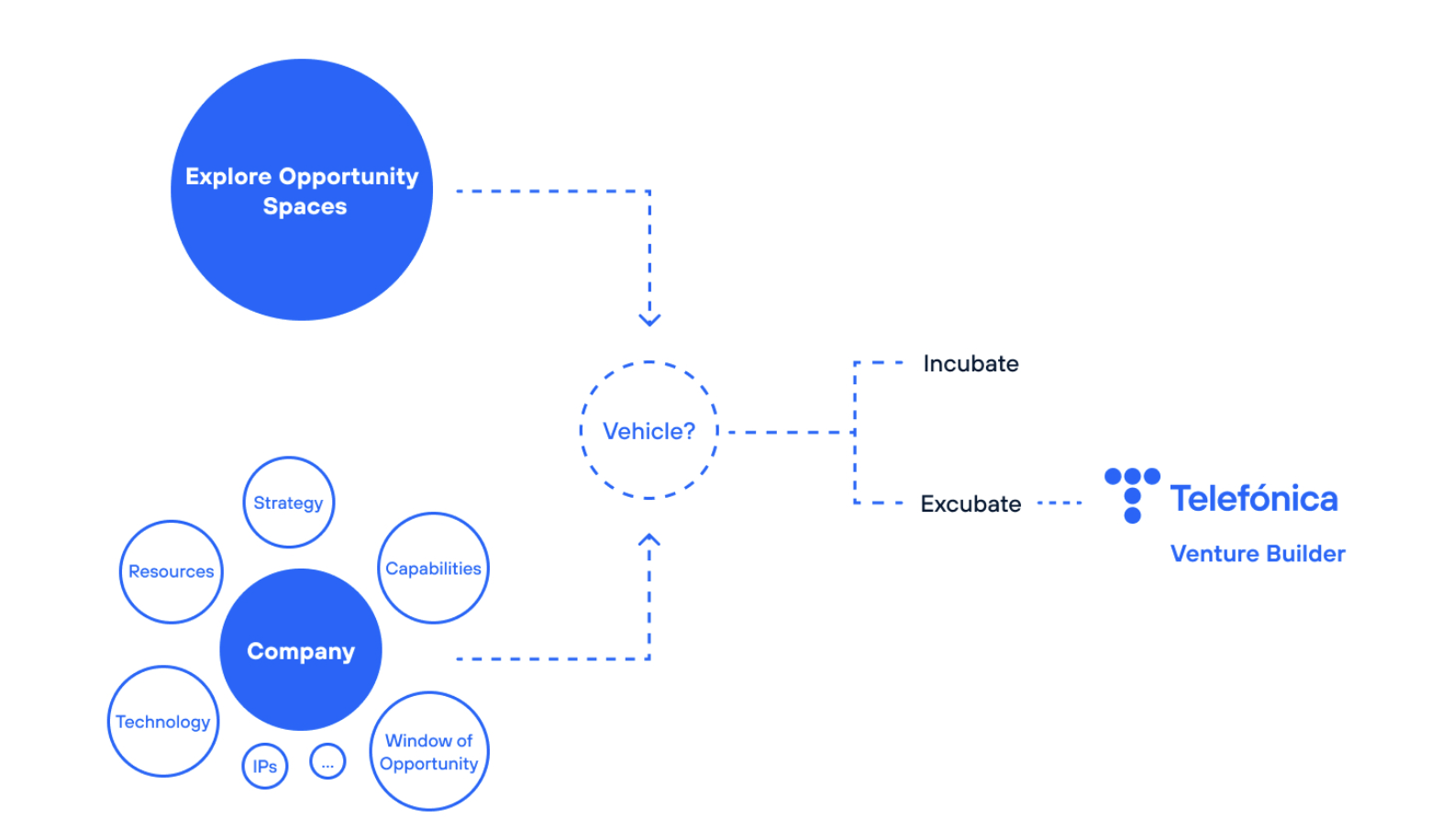
Why It Works:
- Acts as a global innovation network, supporting over 400 startups across 11 countries.
- Provides strategic assets, helping startups integrate AI, IoT, and 5G solutions into Telefónica’s ecosystem.
- Telefónica Venture Builder ensurs high-potential projects can scale independently or remain within Telefónica’s portfolio.
6. AstraZeneca BioVentureHub

Headquarters: Sweden
Active in: Pharma & biotech
Launched: 2014
Activities: Incubation, acceleration
Director: Pernilla Isberg
AstraZeneca BioVentureHub is a collaborative ecosystem where bio- and med tech startups can grow, supported by AstraZeneca's world-class knowledge, capabilities and infrastructure. Participating startups and academic groups co-locate and interact with AstraZeneca experts (and with each other) with the goal of advancing life science, health care and the wellbeing of patients.
Why It Works:
- Gives biotech startups access to AstraZeneca’s R&D facilities, accelerating drug discovery.
- Fosters collaboration between startups, researchers, and AstraZeneca scientists to drive innovation.
- Bridges the gap between discovery and commercialisation with regulatory support and market access.
7. Kamet by AXA
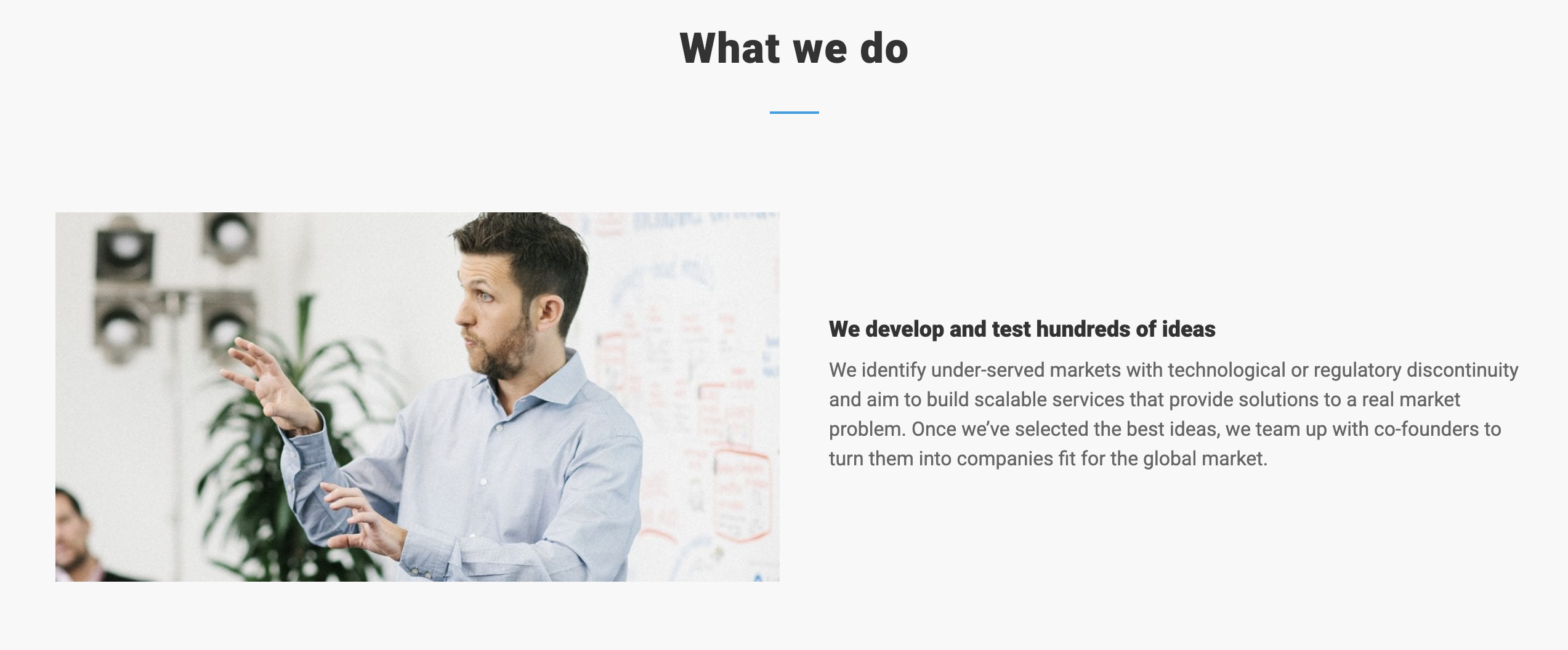
Headquarters: France
Active in: InsurTech, HealthTech
Launched: 2016
Activities: Incubation, acceleration, investments
CEO: Christophe Bourdon
Kamet Ventures is AXA’s venture builder, focused on developing disruptive startups in insurance, digital health, and fintech. Unlike traditional incubators, Kamet builds companies from scratch, assembling founding teams and providing capital, regulatory support, and access to AXA’s global network.
Why It Works:
- Acts as AXA’s dedicated venture studio, identifying high-impact opportunities and launching fully-fledged startups.
- Provides deep industry expertise, capital, and operational support, ensuring ventures can scale rapidly and integrate with AXA’s ecosystem.
- Takes a hands-on approach to venture building, fostering innovations that address key insurance and healthcare challenges.
8. Perseo by Iberdrola

Headquarters: Spain
Active in: Renewable energy, sustainability, smart grids
Launched: 2008
Activities: Incubation, acceleration, investments
Head: Oscar Cantalejo
Perseo is Iberdrola’s corporate venture program, focused on investing in and partnering with startups developing breakthrough technologies in renewable energy, electrification, and smart grids. It provides funding, mentorship, and access to real-world testing environments to accelerate the transition to a sustainable energy future.
Why It Works:
- Connects Iberdrola with cutting-edge energy startups, driving innovation and growth.
- Funds and pilots new technologies, testing new technologies that can optimise Iberdrola’s global energy infrastructure.
- Strengthens Iberdrola’s sustainability strategy, furthering its clean energy transition.
9. The Garage by Microsoft

Headquarters: USA
Active in: AI, Software,
Launched: 2014
Activities: Incubation
General Manager: Jeff Ramos
The Garage by Microsoft is an internal innovation lab and experimental incubator that empowers employees to develop, test, and launch new software, AI solutions, and productivity tools. It fosters a culture of intrapreneurship, encouraging employees to work on passion projects that could evolve into Microsoft products or integrations.
Why It Works:
- Encourages hands-on experimentation and rapid prototyping, allowing employees to test ideas in real-world scenarios.
- Runs global hackathons and innovation challenges, accelerating new product development across Microsoft’s ecosystem.
- Has led to successful integrations into Microsoft’s core offerings, ensuring innovations drive real business impact.
10. EDF Pulse Incubation

Headquarters: France
Active in: Renewable Energy, Smart Grids
Launched: 2017
Activities: Incubation
Director: Régis Combaluzier
EDF Pulse Incubation is EDF’s corporate incubator, designed to develop, support, and scale innovative energy solutions that align with the company’s vision for carbon neutrality and sustainable energy systems. The incubator provides resources, funding, and expert mentorship to internal teams and selected startups, helping them turn concepts into market-ready solutions.
Why It Works:
- Empowers EDF employees to develop new ventures, turning ideas into scalable energy solutions.
- Focuses on breakthrough technologies, including smart grids, decentralised energy, and electric mobility.
- Accelerates innovation by providing funding, infrastructure, and direct access to EDF’s industry expertise and global network.
Corporate incubation as part of your innovation strategy
As you can see, corporate incubators come in all shapes and sizes, and the strategy can be adapted to meet a wide variety of needs. While some companies use them mainly to accelerate their digital transformations, others focus on expanding beyond core offerings or improving existing products and services.
For more inspiring corporate incubator examples, check out our new report: 60 Corporate Incubator examples shaping our future. It’s packed with valuable insights that explain how some of today’s leading corporations are using incubation to boost growth and dominate their industries.
---
Building a customised incubation strategy enables you to leverage existing assets and take advantage of growth opportunities fast, all while expanding internal capabilities and fostering a culture of entrepreneurship. Get started today.
60 Corporate Incubators Shaping Our Future
Discover how top corporations use incubators to drive innovation and unlock new revenue streams.









